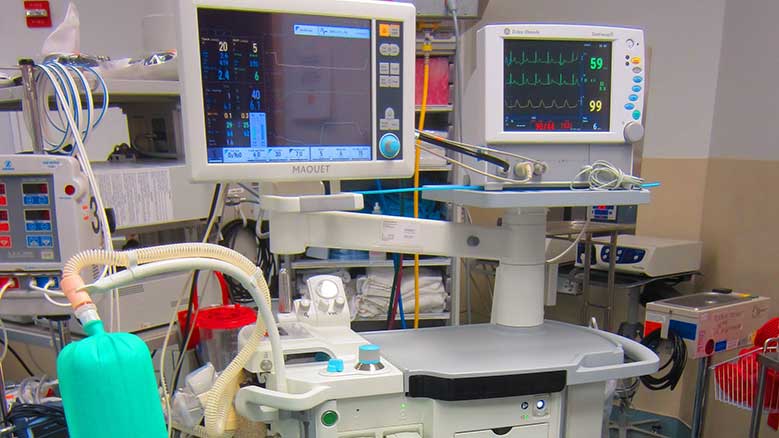Easing your Workplace into Sustainable Practices
One Monday morning, red wiggler worms greeted my co-worker from the coffee machine. And the sink. And the refrigerator door. Worms had even made a mad, wiggling dash toward Accounting.
Although the episode did not end the vermicomposting, or vermin-composting, experiment at my former employer’s office, it was successful in polarizing the staff. When the worm colony died later that year, some co-workers felt guilty while others expressed quiet relief or vocal joy. We’d been trying to "green" our office too fast, and were selecting the most ambitious projects (let’s have worms eat our paper, coffee grounds, and food scraps!) before creating a foundation for a shared office culture change.
I’ve learned that not every company is ready to pay surcharges for wind power, purchase carbon offsets for business travel, turn down the air conditioning or thermostat, buy nontoxic paint and cleaners, cater office parties with local produce, or maintain worm bins.
Offices are difficult places to align with values of Earth stewardship. Whether or not you choose to share the Quaker beliefs underpinning your environmental ministry with your workplace community, it is important to emphasize the quality-of-life and financial benefits of implementing sustainable practices.
The following are some ways that you—whatever your position or role within your company—can ease your office onto a sustainable path without causing frustration or "green fatigue" among your bosses, co-workers, or employees. These might work in ways that quoting Al Gore during the staff meeting—or posting your fantastically small carbon footprint on your cubicle—simply won’t.
If you spend your days outside of an office, I hope that you’ll be inspired to think of creative, tactful ways to incorporate energy conservation and reduced consumption into your own workplace. Here are some possibilities:
Be the person who stands up to the excessive memo generators. Every organization seems to have one. Can e-mail be an alternative? Or face-to-face interaction?
Focus on absurd wastes of money and resources first, to achieve some early, easy wins. Here is an example: Does your company contract with a houseplant maintenance company? I’ve observed companies where the plant minders came in and doused the plants with fertilizers and pesticides, then switched plants out every couple of months on a schedule. If there are gardeners among your staff, it is a less expensive alternative to have one or two of them "adopt" the plants and use a small budget to care for them so that plant turnover and chemical use are reduced.
Make it inconvenient to harm the environment. If your company recycles, encourage the purchase of recycling bins that are larger than the trash bins. Make sure that there are recycling bins everywhere paper is utilized, and in closer reach than the trash bins. Another example: if the company stocks the kitchen with shade-grown, fairly traded coffee, it will be easier for your co-workers to consume that than to go outside the office to find other coffee.
If your company is located near mass transit, talk to your employer about introducing a commuter benefit. The company saves on payroll taxes, you’ll contribute less tax money to the war budget, and there will be an added incentive for your co-workers to ride the rails (or bus or ferry).
Audit your paper use for a week. Does that draft really need to be printed out? Can the margins on internal documents be narrowed? Would it be better to store that document electronically on a computer server rather than in a paper file? How many reams are you consuming in a week?
Bring bicycle culture into your company’s mainstream. Choose a bicycle courier rather than an express mail vendor for deliveries. Think about solutions for making bicycle commutes feasible for yourself and your co-workers. Encourage your company’s building manager to build an outdoor rack and/or to allow bicycles into the office. Is there a freight elevator that can allow bikes to be taken to upper floors? Is there a shower facility in the office or at a nearby gym?
Take advantage of the free online posting sites called Freecycle and Craigslist to give away all of those cardboard boxes after a large delivery to your office. Try using a catchy subject like "Moving? We Have Free Boxes!" in your posting, and you’ll have a response within the hour.
Make the kitchen area more inviting. When we rush out to have lunch, often we drive short distances to restaurants or take-out shops, where lunch comes in non-recyclable packaging with plastic utensils and piles of napkins. Hide the pizza delivery menu, pull down the cheesy corporate posters, clear out the clutter on the table, and encourage everyone to give the in-office lunch a try more often.
Use videoconferencing and online collaboration tools, which are now a viable alternative to air and car travel for many types of meetings. Test out your camera and conferencing tools with an off-site relative or friend before using them professionally so that you feel more comfortable.
Take an ax to the current workday. For some companies "flextime" is a taboo term, but some employers are shifting away from the 9-to-5 paradigm. For employees, working 40 hours over four days rather than five means avoiding rush-hour traffic, using less gasoline, and having time for personal appointments, family, and volunteering. If flextime might work at your company, talk to your boss and human resources.
Help the office manager or procurement professional rather than criticize current office supply purchases. Increase awareness of greener alternatives by doing the legwork for yourself. Review the Center for a New American Dream’s procurement site and get quotes and catalogs that include recycled, recyclable, and nontoxic products. Offer to be a point person for an energy audit or e-waste disposal, and offer to help review products when appliance and technology purchases are planned. Respect the budgetary pressures that the purchaser may be under from the boss, but be persistent.
Bring the outside in with more plants and sunlight. You may be stuck in a basement, your building positioned away from the sun, or have glare that drives one of your co-workers crazy, but try to open the blinds and turn the overhead lighting down every chance you get.
This piece was inspired by my recent experience working with the "greenest" workplace of my career to date, RecycleBank, LLC. RecycleBank works with municipalities and haulers around the country to increase recycling rates by offering residents and businesses incentives for recycling. The decorations around the office were made of bark and recycled materials; we spent Earth Day outside on volunteering projects; and, mercifully, there were no worm bins. To learn more about bringing the RecycleBank program to your city or town, visit http://www.recyclebank.com.



